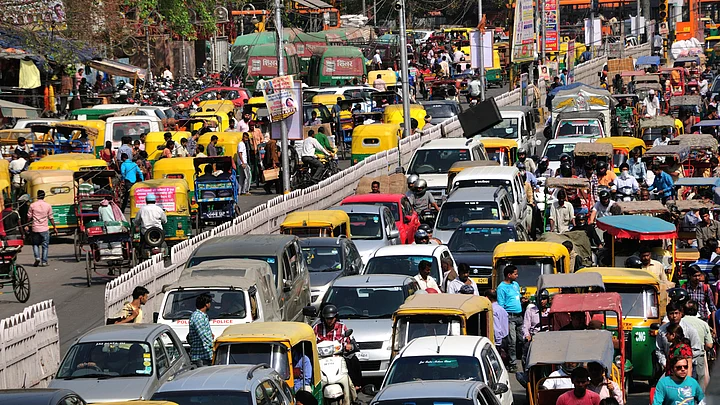Stating that the imposition of hefty fines won’t be feasible, the BJP-ruled Gujarat government has expressed its reservation in implementing the provisions of Motor Vehicles (Amendment) Act 2019, News18 reported on Monday, 2 September.
The state government will take a call on the enhanced fines introduced under the new amendment after a week based on a report by the transport and police departments, Chief Minister Vijay Rupani reportedly said on Sunday.
Rupani’s remarks came as several other states including Madhya Pradesh, West Bengal and Rajasthan, delayed the implementation of the amended Act (and accompanying rules) so as to allow people to get acquainted with the penalties.
"The Centre has increased fines for traffic offences, which has been implemented in the entire country from 1 September. Gujarat government has been informed that the new fine rates as per Central government norms are maximum. On what the state needs to do and not do, we have asked our RTO and police department to suggest new fine rates, news agency PTI quoted Rupani as saying.
"The report has come. In a week, we will meet and decide new norms of fines in Gujarat," he reportedly said.
People in Gujarat are apprehensive of the fines and several messages on social media were centred around them.
"We from the middle class purchase two-wheelers on loans. To have to pay such hefty fines for simple traffic offences will be a big blow," Rakesh Patel, a local resident , told PTI.
Rajasthan Govt Mulls Providing Relief to Violators
On Sunday, 1 September, Rajasthan Transport Minister Pratap Singh Khachariyawas had said the state government is considering to provide practical relief to violators of the amended Motor Vehicles Act from hefty penalty charges, PTI reported.
Khachariyawas said motorcycles are the mode of transport of the common people and it is not practical to impose hefty fines on them. In some cases, the penalty could be higher than the cost of the vehicle. A similar problem is being faced with e-rickshaws and old four-wheelers, the minister reportedly said.
He said there is no conflict of interest between the state government and the Centre on the Motor Vehicles Act, but effective prevention of accidents is only possible if ideas and practical suggestions are mutually exchanged.
MP Will Implement New Act After Public Awareness, Says Minister
On the same day, the Congress-led government in Madhya Pradesh said the Motor Vehicles (Amendment) Act, which hikes fines many times over for several traffic offences, will not be enforced in the state as of now.
MP Law and Legal Affairs Minister PC Sharma reportedly said the law would be implemented once people are made aware of the enhanced fines.
"The Motor Vehicles (Amendment) Act would not come into effect from 1 September in MP. First there is a need to educate people over the new law. Let people come to know of the fines, then we will activise the law,” Sharma had said, as per PTI.
He, however, said the state government had not issued any notification to reduce the fines laid down in the amended Act passed recently by Parliament.
"A person not wearing a helmet while riding a two- wheeler can be fined Rs 5,000. If he fails to pay it, he can be jailed. How many people will go to jail? People will get into the habit (of following the law) gradually," Sharma contended.
The law will be implemented in MP after Chief Minister Kamal Nath holds talks with the Centre, he had said.
Delhi Govt to Consult Traffic Police, Other Stakeholders
The Delhi government, too, decided to have wide consultations with various stakeholders, including the city traffic police, before issuing the notification for compounding various offences under the amended motor vehicle law.
"Since heavy penalties have been prescribed under the Act after a gap of many years, the compounding notification will be issued after wider consultation with traffic police and other stake holders," Delhi Transport Minister Kailash Gahlot had said in a statement on Saturday.
What is the Impact of the 2019 Amendments?
Parliament passed the Motor Vehicles (Amendment) Bill, 2019, in July. The new law seeks to tighten traffic regulations and impose steep penalties for violations of traffic rules.
Under the new law, people not wearing helmets or seat-belts will be fined Rs 1,000, up from the earlier Rs 100, while those driving without a licence can be fined Rs 5,000, up from Rs 500, or face 3-month jail.
(With inputs from News18 and PTI)
(At The Quint, we question everything. Play an active role in shaping our journalism by becoming a member today.)
